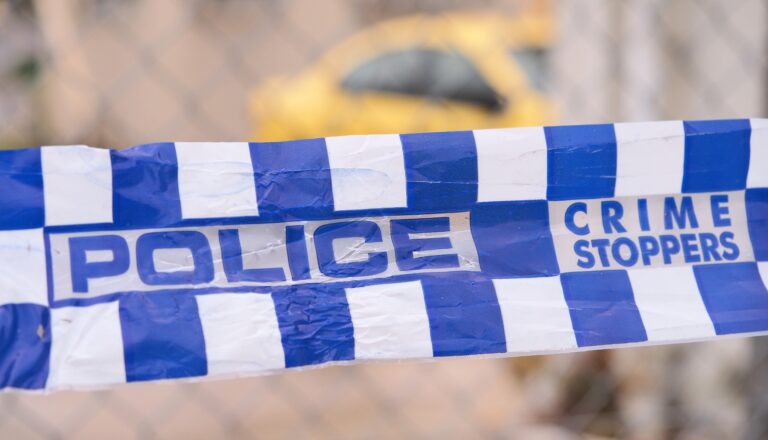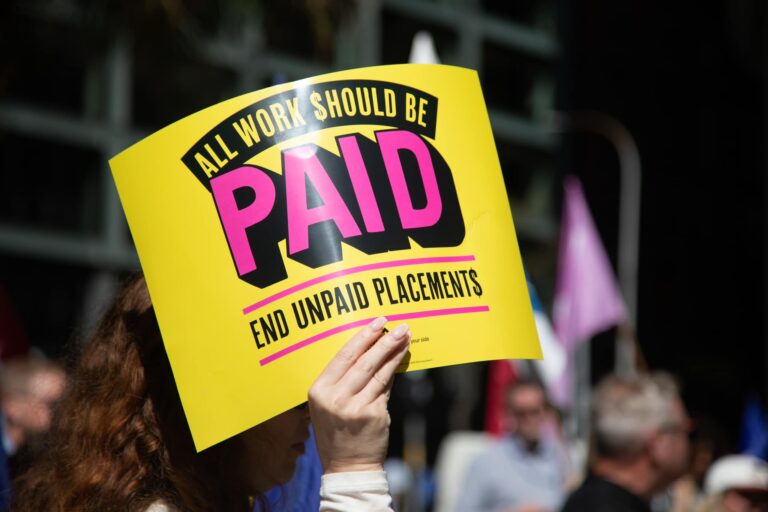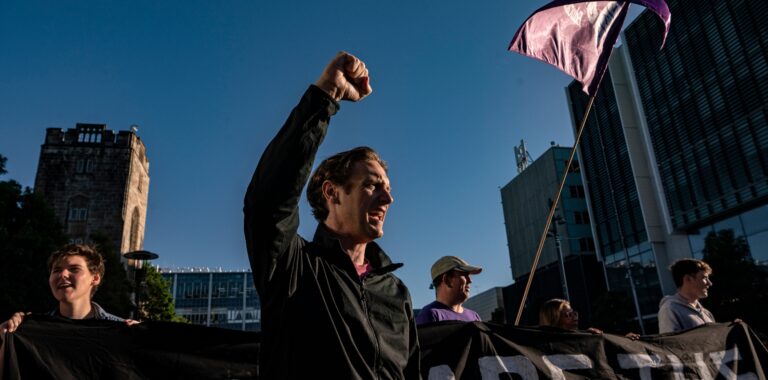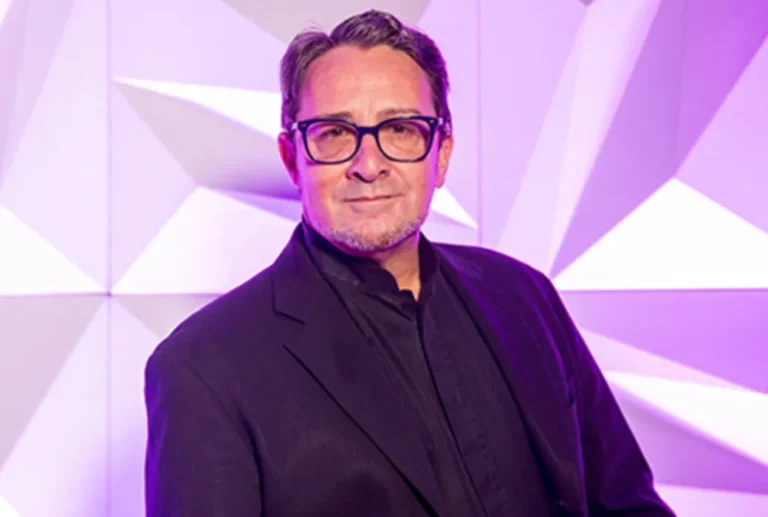
Glebe community remembers Jesse, shot and killed by NSW Police
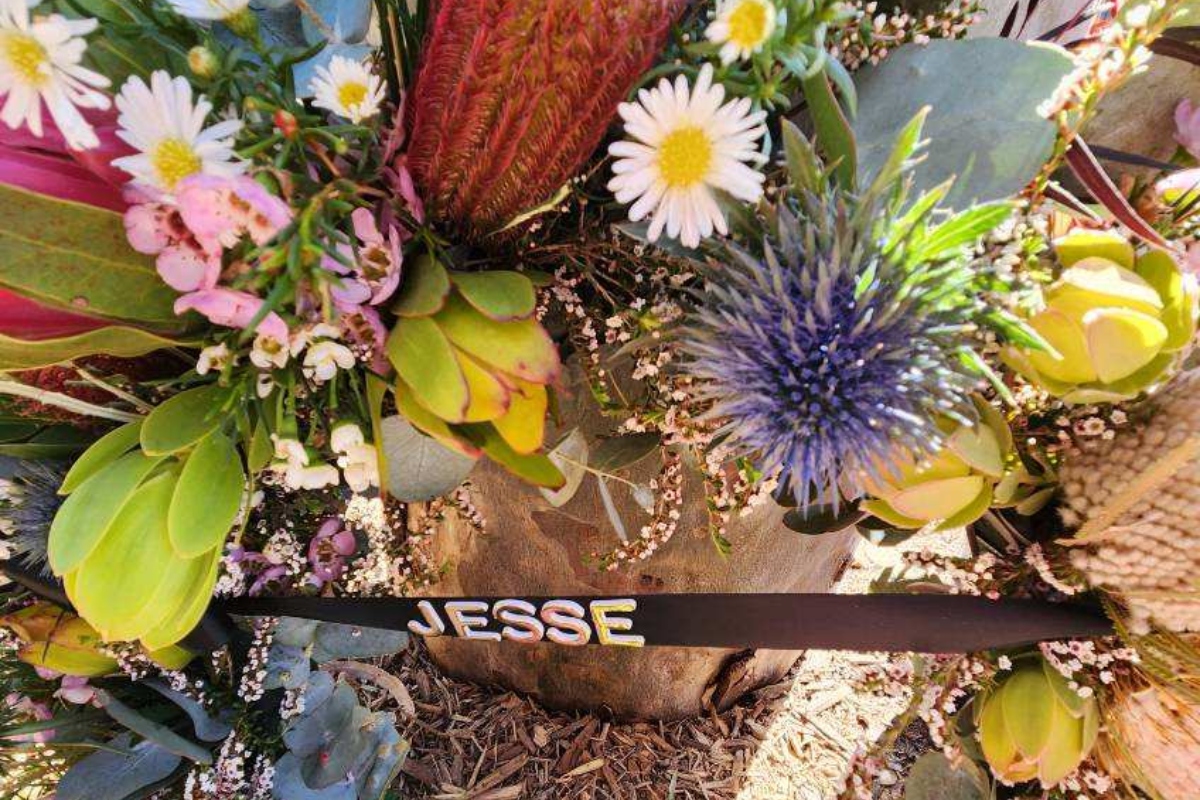
By ROBBIE MASON and RACHEL EVANS
A crowd of 30 locals attended a sombre memorial service yesterday morning for Jesse, a man killed and shot by police in his own home in the Franklyn Street public housing estate in Glebe.
The shooting incident occurred at a block of units on Glebe Street that was recently saved from demolition, following the NSW government’s decision to halt proposed redevelopment.
Leichhart police attended the Franklyn Street Estate to check on the 43 year old man’s well-being following a report of self-harm. Inside, the man confronted police with a knife while undergoing a mental health episode. Police shot and killed the man when a taser failed to work.
Residents from the Frankly Street Estate attended the moving memorial service, which was moderated by Hands Off Glebe’s Denis Doherty and Aboriginal pastor Dr Ray Minniecon from the St John’s Anglican Team. Speeches at the community memorial centred on the need for kindness, better mental health services, improved police training around mental health crises and demanding justice for Jesse.
Dr. Ray Minniecon explained the trauma many First Nations families experience with police shootings. He ended the service with a defiant fist raised and called on participants to keep resisting.
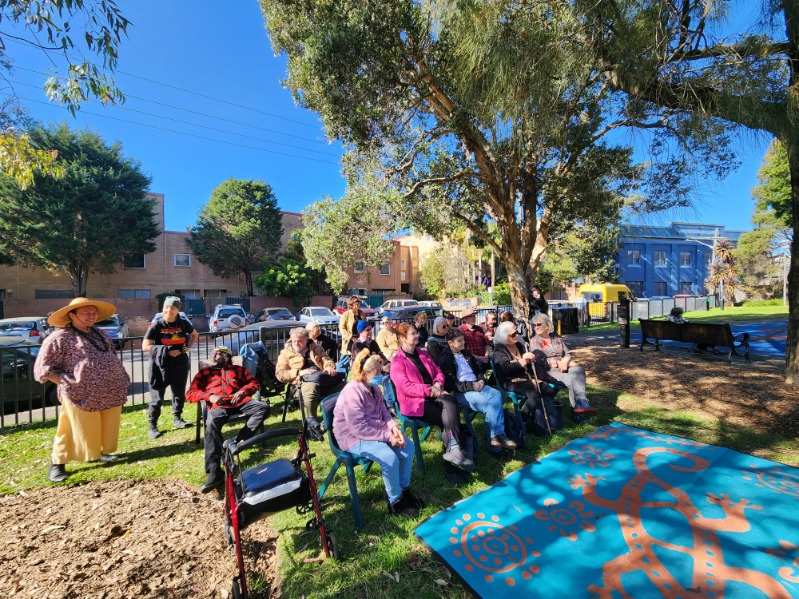
Denis Doherty from Hands Off Glebe told City Hub that, in the shooting’s aftermath, there was “an undercurrent of anger that Jesse’s incident seems to have been handled so violently and that the issue had disappeared off the radar. It seemed as if the world was saying Jesse’s life didn’t matter.”
But the memorial service was a cathartic experience for those in attendance. The tight-knit community remains resilient in the face of police violence.
Jesse was a man loved and appreciated across diverse communities. The memorial service in Glebe was just one of four commemorations that have occurred for Jesse since the shooting including a family affair, a separate gathering of his high school friends and a memorial service in the graveyard in Newtown behind St Stephen’s Anglican Church.
Public housing tenants and supporters speak out
Emily Valentine, a tenant at the Franklyn Street Estate, expressed concern over the police’s excessive use of force.
“Police behaviour demeans tenants and makes us feel powerless,” she said. “If it happened to Jesse, it could happen to anyone in the estate.”
Inner West Greens Councillor and Balmain MP Kobi Shetty has expressed solidarity and offered “sincere condolences”.
“What happened at Franklyn Street was terrible,” she said. “Nobody should lose their life because they’re having a mental health episode.”
Tenants believe there is inadequate mental health support available.
As Emily Valentine explains, “we only know Jesse had been in our estate for three days, and he may have come straight from a mental facility, but he certainly wasn’t getting support. There was no support.”
“We still want answers,” clarified Valentine. “The police haven’t come back to our community to explain what happened, given an apology, or told us about the coronial process.”
Questions raised over police response
Community voices have emphasised their unease with police attending to people experiencing acute mental health crises.
Shetty said that the recent police shooting “demonstrates a desperate need for a well-resourced, appropriate mental health response team to deal with incidents like this, not police with guns.”
“I’ve written to the Police Minister and the Minister for Mental Health about what can be done to prevent this from happening in the future,” she continued.
Wiss has demanded clarification on the incident from the NSW Police Force (NSWPF) and transparency: “We want to know what happened to Jesse. We don’t want him to be an unknown tenant carried off in a body bag and forgotten.”
“Was a mental health team called? What care was taken?” Wiss questioned.
“Jesse was not disposable. We are not disposable.”
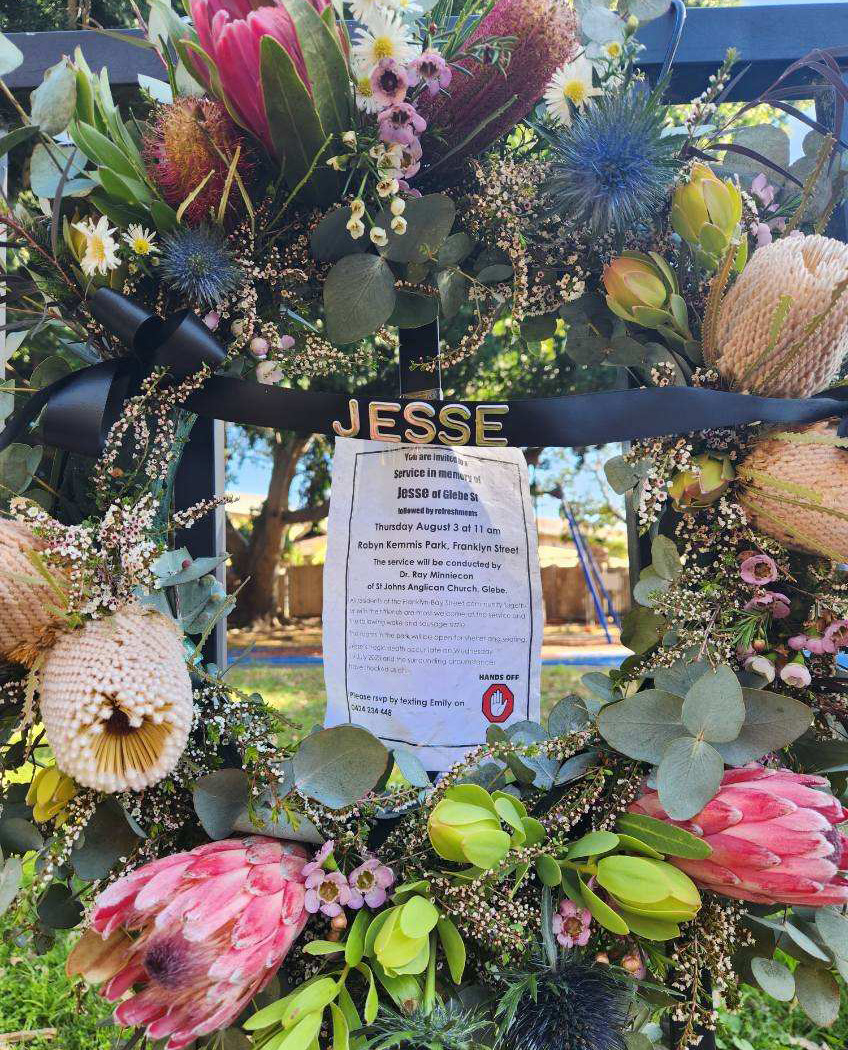
In June this year, a former police officer told the Sydney Morning Herald that NSW Police had scrapped an award-winning four day training program, which provided instruction on interacting with civilians experiencing mental health crises, without introducing an adequate replacement course.
The state’s police watchdog, the Law Enforcement Conduct Commission (LECC), released a report in May that found mental health training in the force is “extremely limited”. The vast majority of police officers in NSW undertake one sole day of mental health training during their 16 week initiation.
The report found that the NSWPF Mental Health Intervention Team (MHIT) was woefully understaffed, limiting the delivery of the award-winning four day course to 300 officers per year. As a result, only 2420 officers completed the program between February 2008 and September 2019, when the program was axed.
According to the NSWPF Annual Report 2021-2022, there were 17,659 officers employed at the time of publication.
A NSWPF spokesperson told City Hub, “The NSWPF has developed a mental health training model which ensures all NSWPF officers receive annual mental health training.”
“The annual training consists of the most contemporary mental health training requirements and includes scenario-based role play for all officers as part of their weapons and defensive tactics training.”
Second death in three years at Franklyn Street Estate
Valentine pointed out to City Hub that Jesse’s death was the second in three years for tenants at the Frankly Street Estate following the suicide of Wayne Gardener.
Gardener was “a lovely neighbour, well liked by everyone”, Valentine said. But when tenants at the site received eviction notices in the mail in November 2020, Gardener was “so distressed” by the “lack of respect and care” from the Department of Communities and Justice that “he boarded himself into his apartment and set himself alight.”
In a letter to the NSW State Coroner’s Court, dated 11 May 2021, Emily Valentine, wrote that Gardner took the news of eviction “badly as he had recently adapted himself and the property to his new life”.
“He only took the tenancy about 3 months earlier. I believe he had been ‘moved on’ before and so he was fearful and depressed by the Housing NSW procedure and total lack of care and respect. His need to harm himself and the department’s property is confirmed by the way he chose to die.”
“We chased the coroner for the report, but they never got back to us,” explained Valentine.
The authors of this article contacted the NSW Coroners Court about the investigation into Wayne Gardener’s suicide. They reported the investigation was discontinued but did not reply as to why.
Following the suicide of Wayne Gardener, Hands Off Glebe reached out to then City of Sydney Councillor Kerryn Phelps, seeking advice and help. Phelps organised for a delegation to meet then Mental Health Minister Bronny Taylor who was “gracious” and listened, Doherty told City Hub. After this meeting Doherty received one phone call from a health representative but little eventuated for the tenants at the Frankly Street complex in terms of direct intervention by mental health support services.
While it is unclear if Jesse was Aboriginal, activists at the memorial called for people to attend the upcoming Black Lives Still Matter to protest deaths in custody.
Rachel Evans is the Sydney Socialist Alliance organiser, a journalist with Green Left and an activist with Action for Public Housing.

